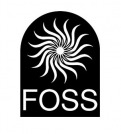Website Review: National Library of Virtual Manipulatives

This website is exactly what it is described as: a library of virtual versions of traditional hands-on manipulatives for learning math concepts. Using virtual versions of manipulatives such as fraction bars, base blocks, and pattern blocks can provide several benefits including:
Although these tools could prove very helpful for teaching "the basics", they would likely have little relevance for this Transportation thematic unit.
Rating: 2.2/4 (see PowerPoint checklist file below)
- student independence
- no need to purchase/obtain materials
- no need to distribute or clean up materials
- can provide automatic problems, prompts, scoring, and/or self-checks
Although these tools could prove very helpful for teaching "the basics", they would likely have little relevance for this Transportation thematic unit.
Rating: 2.2/4 (see PowerPoint checklist file below)
| website_evaluation_nlvm.pptx |
Website Review: PhET Physical Simulations

The PhET physical simulations website provides a variety of science simulations and virtual labs. These simulations act like the diagrams you would typically see in science textbooks to illustrate concepts, but take it a step further by making them animated and interactive. These are great tools for inquiry-based learning because students can modify factors and variables and directly see how those factors affect the outcome.
Most of these simulations require Java and can even be downloaded to use off-line. Most of them have also been translated into as many as a dozen or more different languages.
The simulations can be somewhat complex to figure out and use, but there are several that would prove beneficial for exploring the types of energy used for various modes of transport -- such as buoyancy, electricity, gases, and thermodynamics -- which students could use to better understand existing propulsion technologies or possibly how to improve upon them.
Rating: 2.6/4 (see PowerPoint checklist below)
Most of these simulations require Java and can even be downloaded to use off-line. Most of them have also been translated into as many as a dozen or more different languages.
The simulations can be somewhat complex to figure out and use, but there are several that would prove beneficial for exploring the types of energy used for various modes of transport -- such as buoyancy, electricity, gases, and thermodynamics -- which students could use to better understand existing propulsion technologies or possibly how to improve upon them.
Rating: 2.6/4 (see PowerPoint checklist below)
| website_evaluation_phet.pptx |
Website Review: FOSSweb

FOSS is the Full Option Science System, an inquiry-based science curriculum offered by Laurence Hall of Science at University of California - Berkeley. This website is a companion to the FOSS curriculum, but you can use the site for free even without using the other curriculum materials.
FOSSweb is visually well-designed for even very young students to use. The topics covered are aligned to California state standards, though it can be slightly difficult to differentiate by grade level since they are clumped into groups like "K-2" and "3-6." The organization, games (Flash/Shockwave-based), and media that are present are all great, although sometimes sparse. For example, each topic includes one interactive game/activity, but videos and photos are not always present for all topics. There is an "Ask a Scientist" feature intended to allow students to interact by asking questions, but they are currently unable to answer any questions, and the format for reading the existing answers is long, difficult to navigate, and contains text only. There is some support for language learners through use of audio books and Spanish vocabulary resources.
Some of the topics on this site would provide much-needed background knowledge for modern transportation, including:
FOSSweb is visually well-designed for even very young students to use. The topics covered are aligned to California state standards, though it can be slightly difficult to differentiate by grade level since they are clumped into groups like "K-2" and "3-6." The organization, games (Flash/Shockwave-based), and media that are present are all great, although sometimes sparse. For example, each topic includes one interactive game/activity, but videos and photos are not always present for all topics. There is an "Ask a Scientist" feature intended to allow students to interact by asking questions, but they are currently unable to answer any questions, and the format for reading the existing answers is long, difficult to navigate, and contains text only. There is some support for language learners through use of audio books and Spanish vocabulary resources.
Some of the topics on this site would provide much-needed background knowledge for modern transportation, including:
- Magnetism & Electricity
- Earth Materials
- Matter & Energy
- Solar Energy
- Models & Designs
| website_evaluation_foss.pptx |
